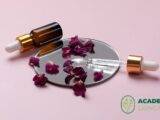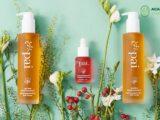Argan Oil vs Rosehip Oil in Skincare
Last Updated on July 6, 2023 by Aysenur Yashar
Natural face oils are incredible additions to any skincare routine! Facial oils nourish the skin and can even act like skin moisturizer and provide hydration! Especially rosehip oil and argan oil are one of the ancient medicinal plants used to enhance beauty, glow and skin health for centuries.
The two oils have excellent fatty acid composition and are rich in vitamin e, vitamin c, xanthines and many other yummy nutrients for our skin. Both of the oils have their own unique benefits and their own nourishing properties, however, in order to chose the best face oil, we need to compare them! This week the debate is between the two ancient oils – Argan oil vs Rosehip oil – which one is better?
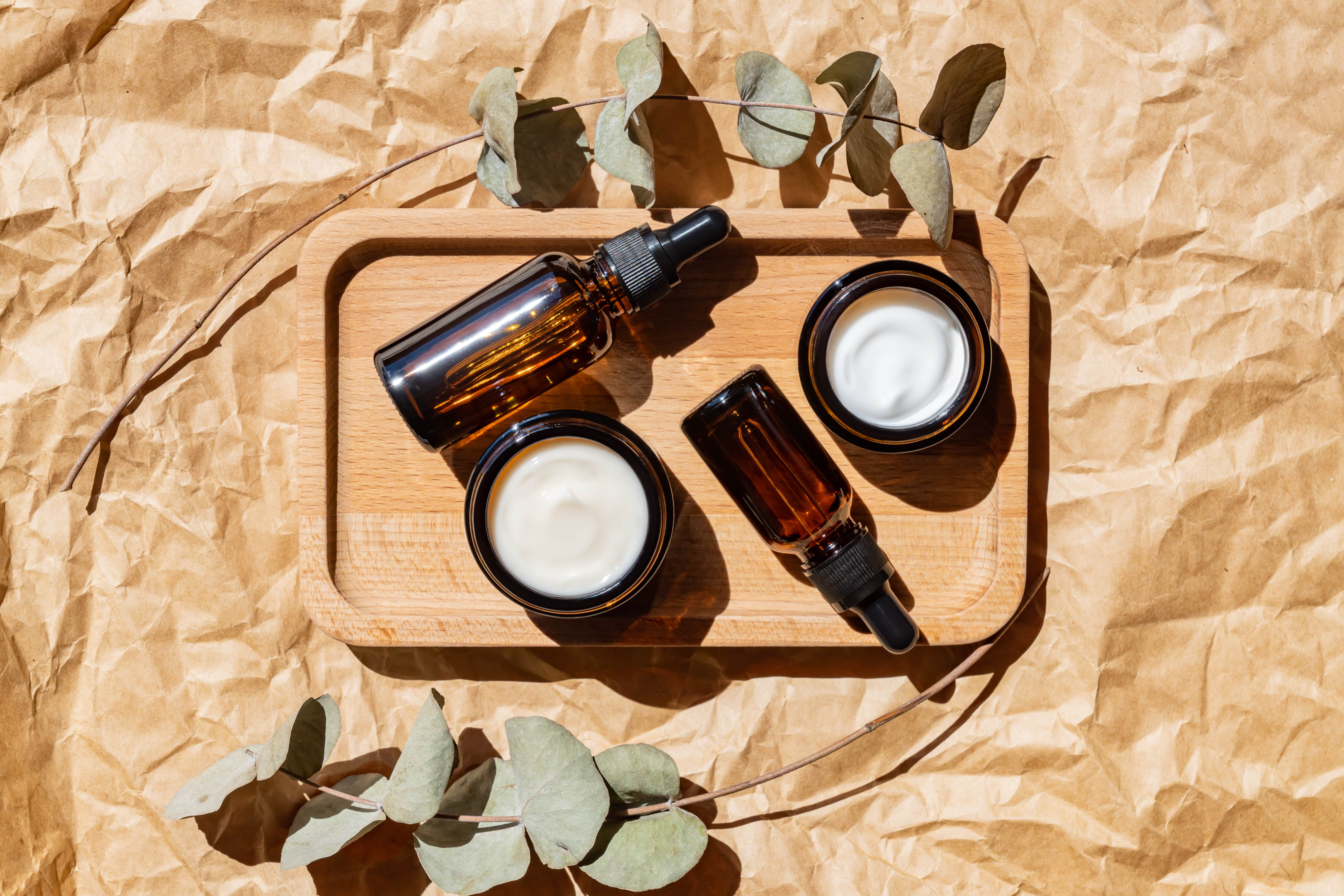
What is Argan Oil?
Argan Oil is harvested from the kernels of the plant A. spinosa in Morroco and argan oil is though to be the beauty secret of Moroccian women.
It is an ancient botanical medicine used for treatment of cystic acne, hydration and many other conditions. No wonder, it is such a potent ingredient in skincare, cosmetics and hair care now!
It has also been an interest topic of scientists so here are the scientifically proven skin benefits or argan oil.
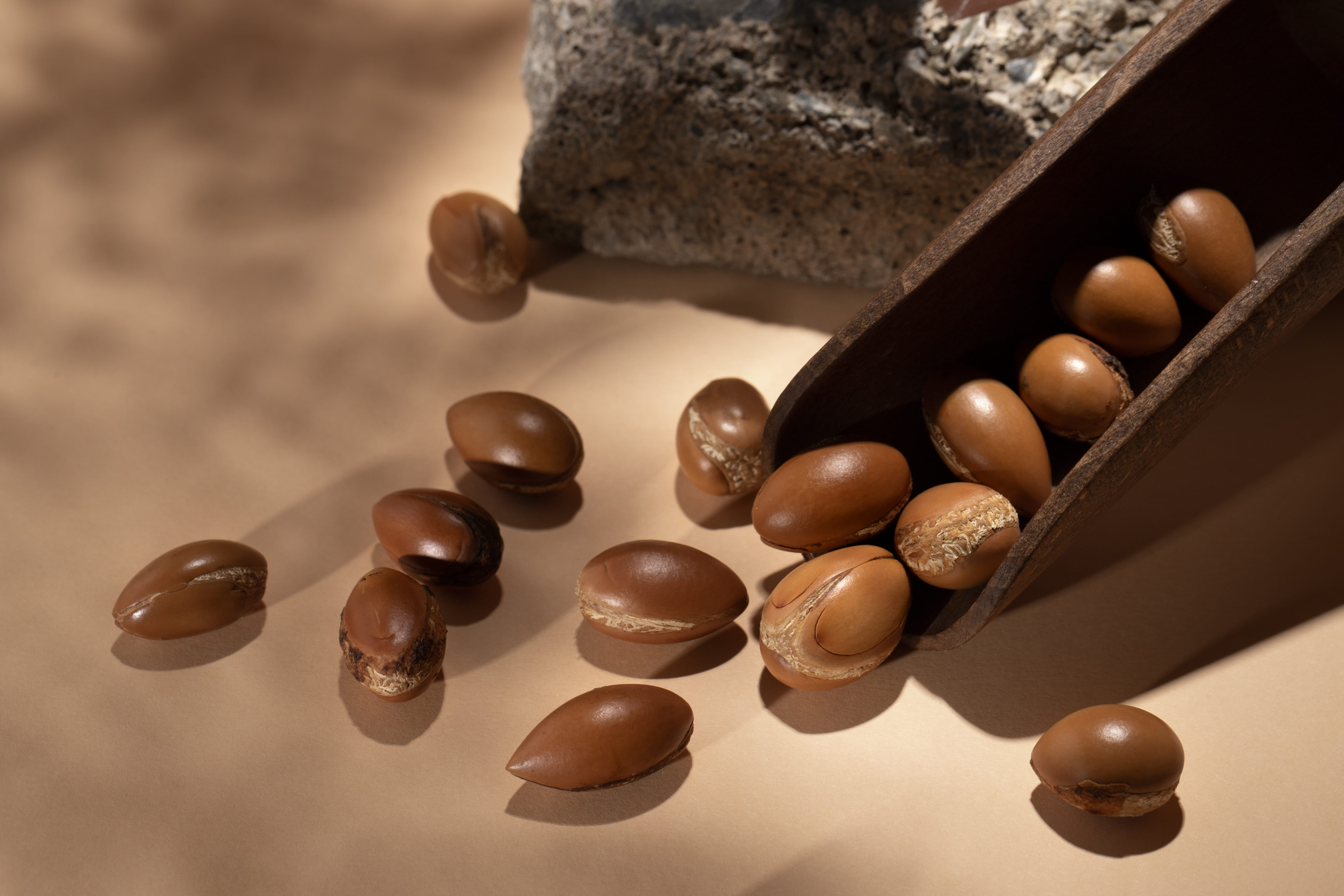
Skin Benefits of Argan Oil?
Skin hydration and Restoring of Barrier Function
Argan oil is really rich in essential fatty acids – oleic acid, linoleic acid, linolenic acid. These fatty acids are very important for the wellbeing of our skin cells and for the proper functioning of our skin barrier.
When our skin barrier is disrupted, they are several micro cracks on our skin through which water can evaporate. This is called trans epidermal water loss.
One study demonstrated that after 60 days of topical and oral use of argan oil, this facial oil have decreased the trans epidermal water loss and improved the skin barrier of the participants.
Science behind it? Well the oil from the ancient argan tree is really rich in linoleic acid. Linoleic acid signals for the production of a cement epidermal lipids which have the ability to restore the skin barrier.
This potent power of linoleic acid in argan oil makes this oil suitable for dry and dehydrated skin.
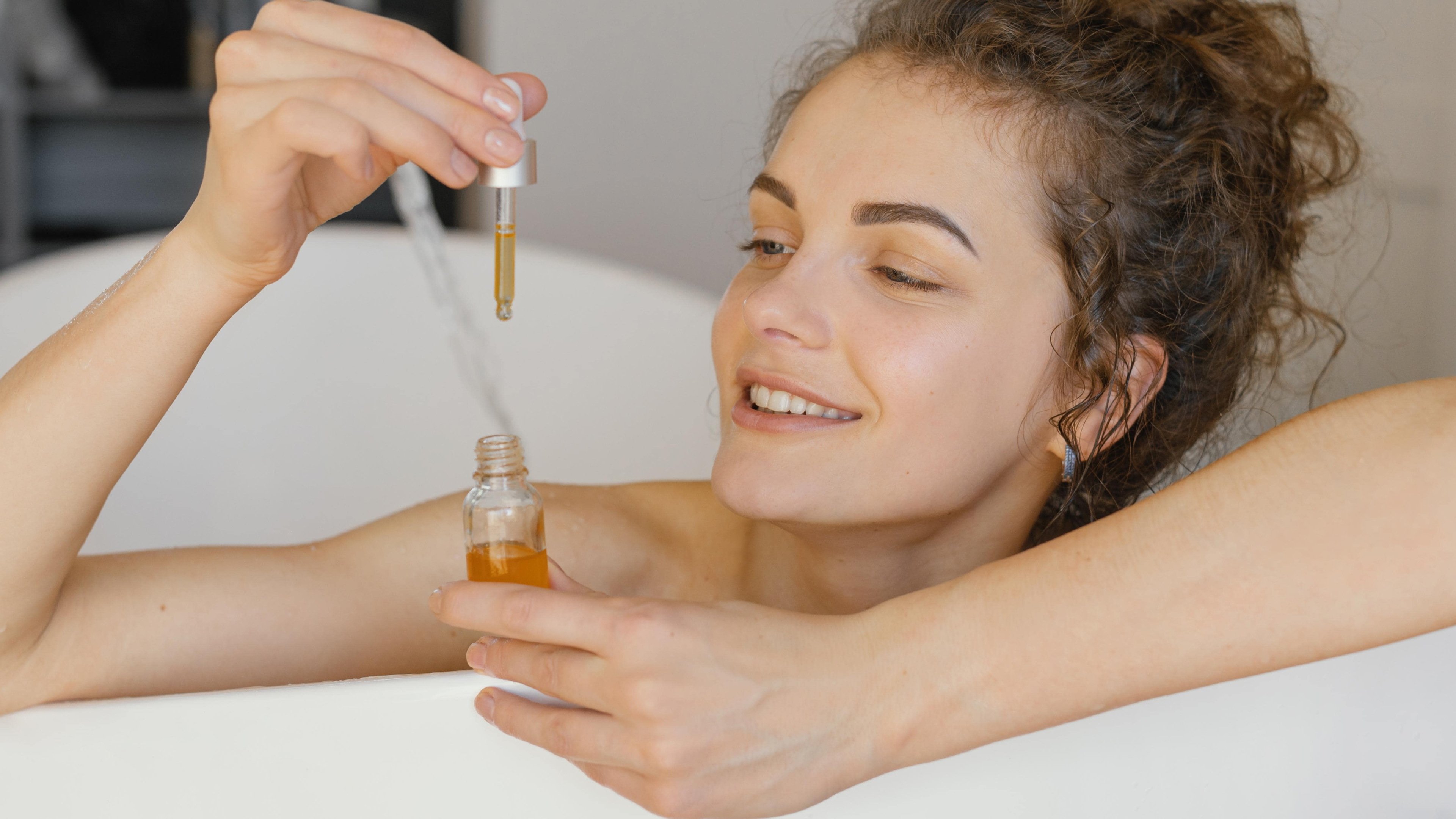
Potent Antioxidant Properties
Argan oil is shown to be very rich in tocopherols which is basically referring to vitamin E. it contains almost twice the amount of tocopherol, in other words vitamin E, compared to Olive Oil.
Skin Elasticity and Argan Oil
Skin elasticity can be increased with argan oil. This oil is really rich in vitamin E and a compound called ferulic acid.
When together, vitamin E and ferulic acid can act synergistically to decrease the effects of reactive oxygen species and signal fibroblasts (type of cells on our skin) to produce more collagen and elastic fibers. Which make our skin look more tight, elastic and hydrating.
Wound Healing and Stretch Marks Improvement
Ah those stretch marks, the ultimate love-hate relationship. We are bombarded with the information that we have to love them yet if we got the chance we would get rid of those stretch marks in a second.
Let’s see how argan oil can help us in this journey.
When our dermis fails to produce enough intrinsic mechanical force we can observe stretch marks. Stretch marks are areas of different colour and texture on our skin. They can be depressed and can have different colours – reddish, white and even blue.
Stretch marks can occur after pregnancy, after weight changes, breastfeeding and due to endocrine dysfunctions. They would usually start as reddish longitudinal lines and then turn into white ones.
Scientists say that skin elasticity is of vital importance in treatment and prevention of stretch marks. In one study they looked at the effect argan oil would have on stretch marks and saw that it significantly increased the elasticity of our skin (just like we covered above). Improvement in the elasticity would subsequently allow your skin to be flexed and extended more without some damage to it. Argan oil seems to be doing a great job at it and has proven scientific information.
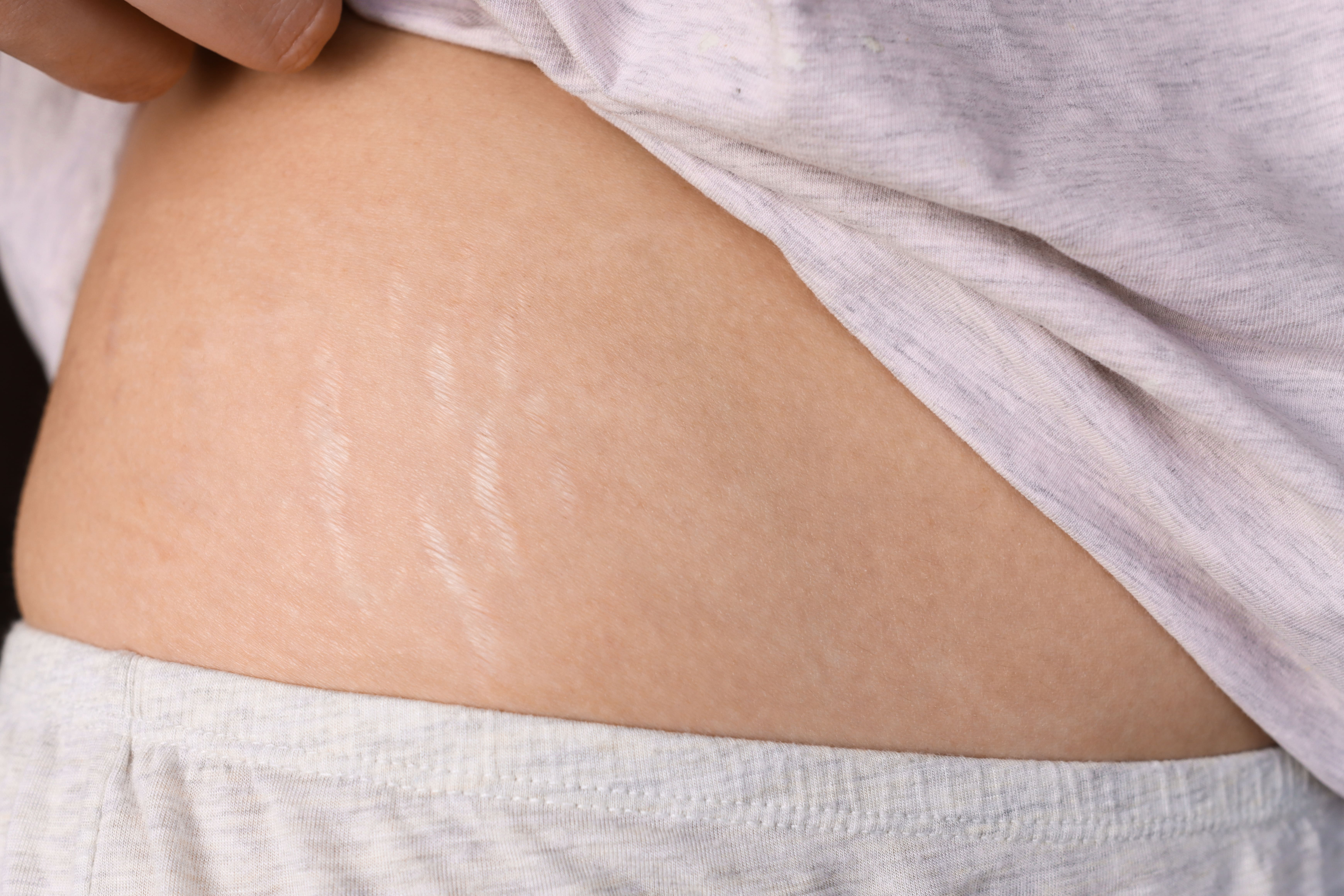
However it is important to note that scientist also say that the best way to treat stretch marks is to prevent stretch marks. What does this mean?
It means that to get longterm improvement on your skin tone you have to regularly use skincare that is going to hydrate and improve the health and elasticity of your skin. It is also vital that to get longterm results we have to be consistent of the usage of this cream!
In the mentioned study argan oil was used for 7 days. If you are going to use argan oil for stretch marks I suggest you use it consistently on your large areas of your body for at least 7 days, for more improvement on your skin cells use it for longer!
Argan oil decreases Sebum Production
Argan oil has been used in Moroccian history for the treatment of cystic acne and here is the science behind this! Oily skin make more sebum and this sebum can clog pores which causes acne.
Argan oil has the natural capacity to decrease the sebum production. So the oil from the argan tree is super suitable for oily skin and acne prone skin.
How did they discover this?
In one study argan oil formulation was applied to the faces of participant twice daily for 4 weeks. Researched saw that the total sebum levels decreased significantly by 20% and in the areas covered with oily spots there was a reduction by 42%.
This makes this facial oil really suitable for excessively oily skin types.
This is though to be due to the essential fatty acids composition of this facial oil. Oleic acid, linoleic acid , γ-linolenic acid, and α-linolenic acid found in plant oils can inhibit both types 1 and 2 of 5α-reductase.
5α-reductase is located on the sebacious glands on our skin, the glands that produce sebum and make our skin oily. Hence once this enzyme is inhibitied, it is expected that less amounts of sebum would be created.
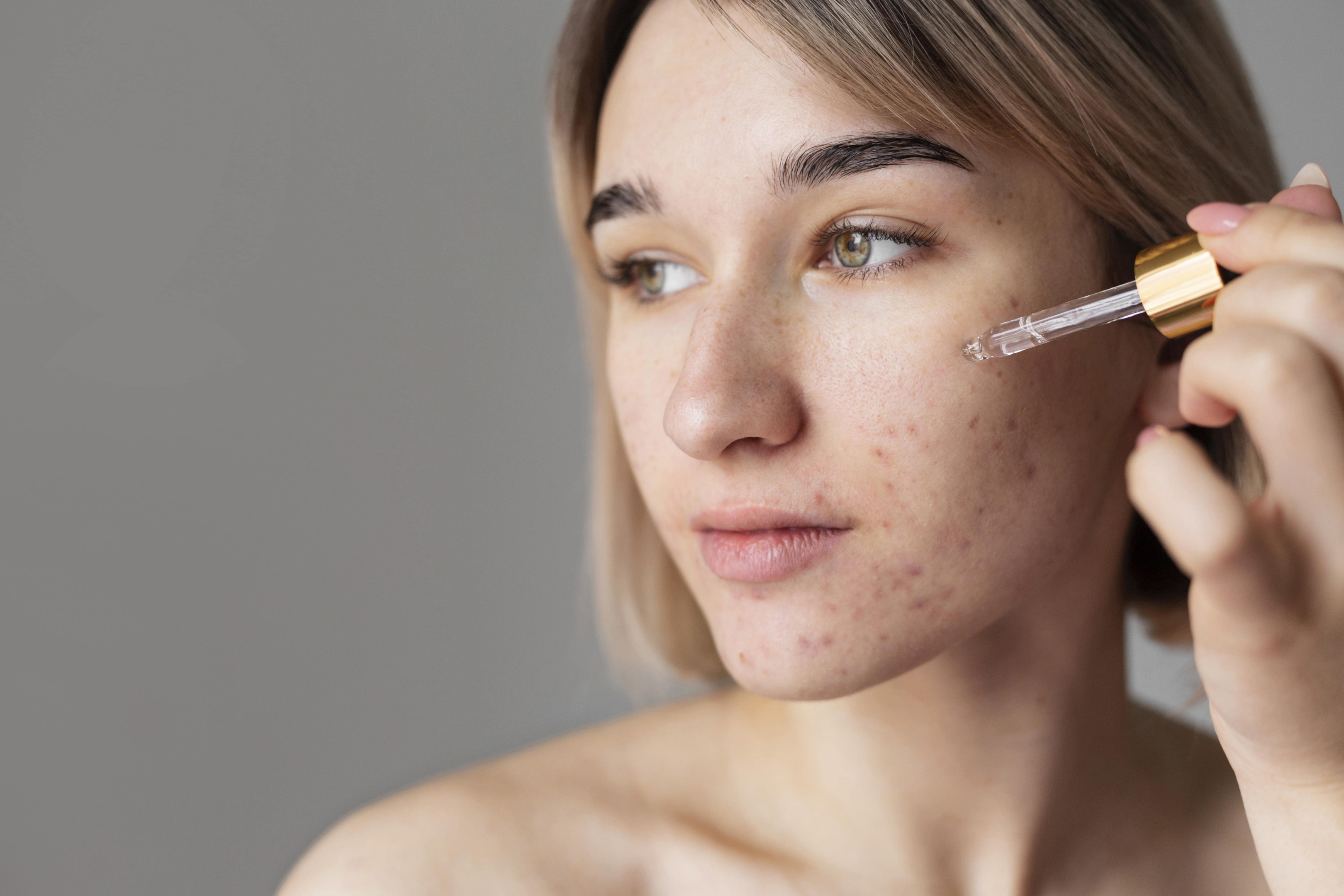
Essential Fatty Acids of Argan Oil
Plant oils are very rich in unsaturated fatty acids which is one of the many reasosn they are suitable for various skin conditions.
Unlike rosehip oil, in argan oil the most abundant fatty acids are oleic acid. Here is more details about the composition.
- Oleic acid – 44.8 %
- Linoleic acid – 31-35%
- Linolenic acid – 0.1%
The high oleic acid plays a very important role in regulating sebum production. As mentioned above oleic acid can decrease the activity of an enzyme that works in the glands that produce the sebum. Linoleic acid, on the other hand, is important in regulating the normal inflammatory reaction of the cell.
The high oleic acid composition in this facial oils makes this fatty acid content as one of the best fatty acid compositions for overly oily skin types. Decreasing sebum is helpful in skin concerns for people with acne prone skin. Less sebum means less clogging of pores and less acne!
Moreover fatty acids are well fatty compounds so they naturally would give an extra hydration to our skin. This is why this oil is actually also very good for dry skin type.
What is Rosehip Oil?
Rosehip oil is extracted from the seeds and fruits of wild rose bushes, rosehip bushes, native to the Andes, central Europe and Chile. Rosehip seed oil is a potent medicinal oil that has been used for skin health since ages. It is also known as dog rose.
Rosehip seed oil can be extracted from mainly two species of the wild roses – Rosa Rubiginosa and Rosa Canina. Since they are slightly different species, you guessed it right, they have different skincare properties. And again, you gussed it right, I compared them – here is the only guide you need for finding the best rosehip oil for your skin – Rosa Rubiginosa vs Rosa Canina.
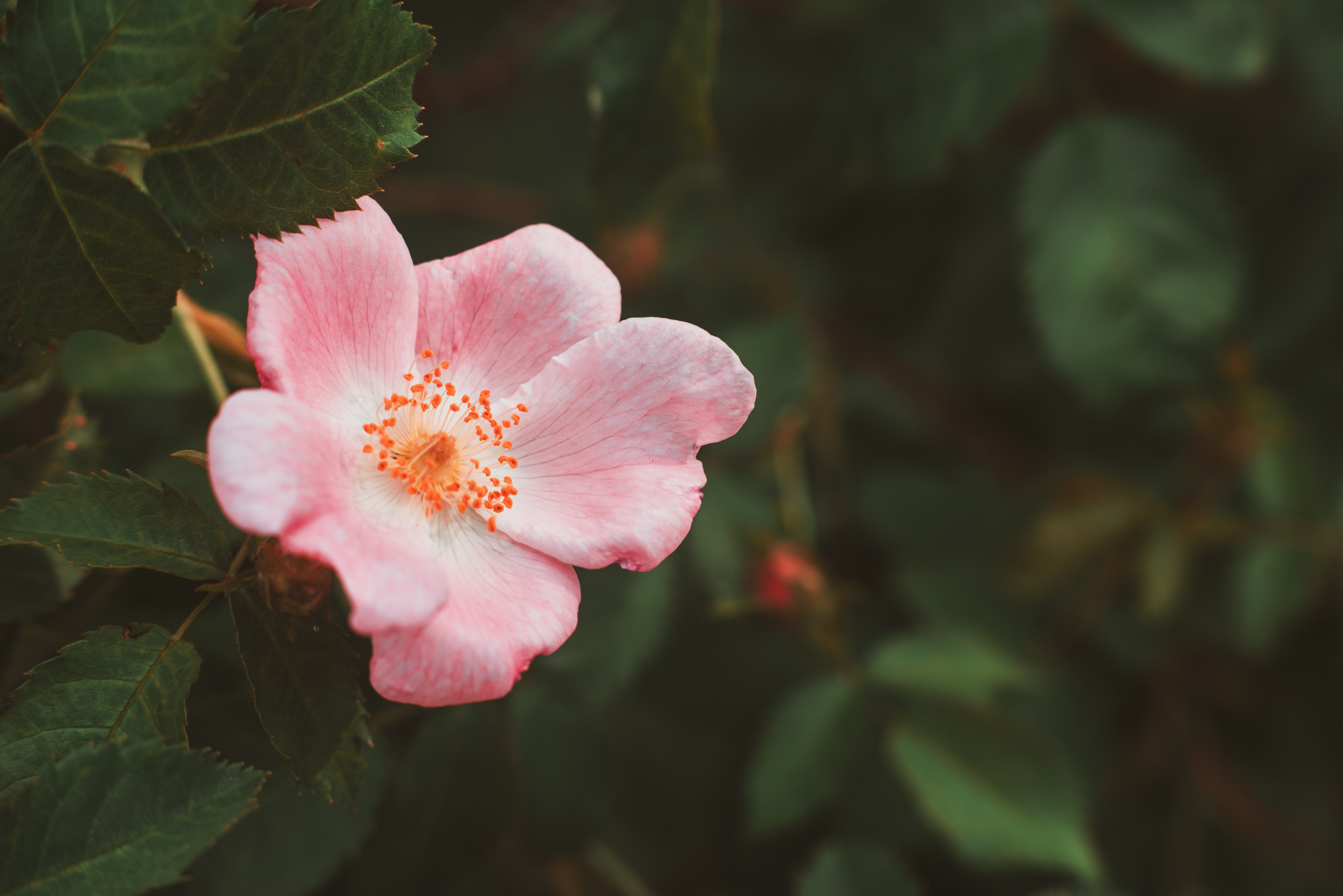
Skin Benefits of Rosehip Oil?
Wound Healing Properties of Rosehip Oil
It has wound healing properties. It actually is known for its wound healing abilities for centuries. Now new scientific data shows that rosehip oil might be accelerating the wound healing by helping macrophage migration to the site of the wound.
Anti Inflammatory properties of Rosehip Oil
Anti inflammatory properties – extract from the seeds of rosehip has been shown to reduce the main orchestrator of inflammation in our body – activated polymorphonuclear neutrophils. These are cells that get activated once there is a damage to the tissues and create an inflammatory environment around those cells. This is aimed at eliminated the damage causing pathogen. A moderate amount of inflammation is tolerable but prolonged inflammation can cause even more damage than good.
Rosehip seed extract has been shown to decrease the migration of these cells, sort of blocking their way. So this oil has potent anti inflammatory properties. This effect is though to be due to the component galactolipin!
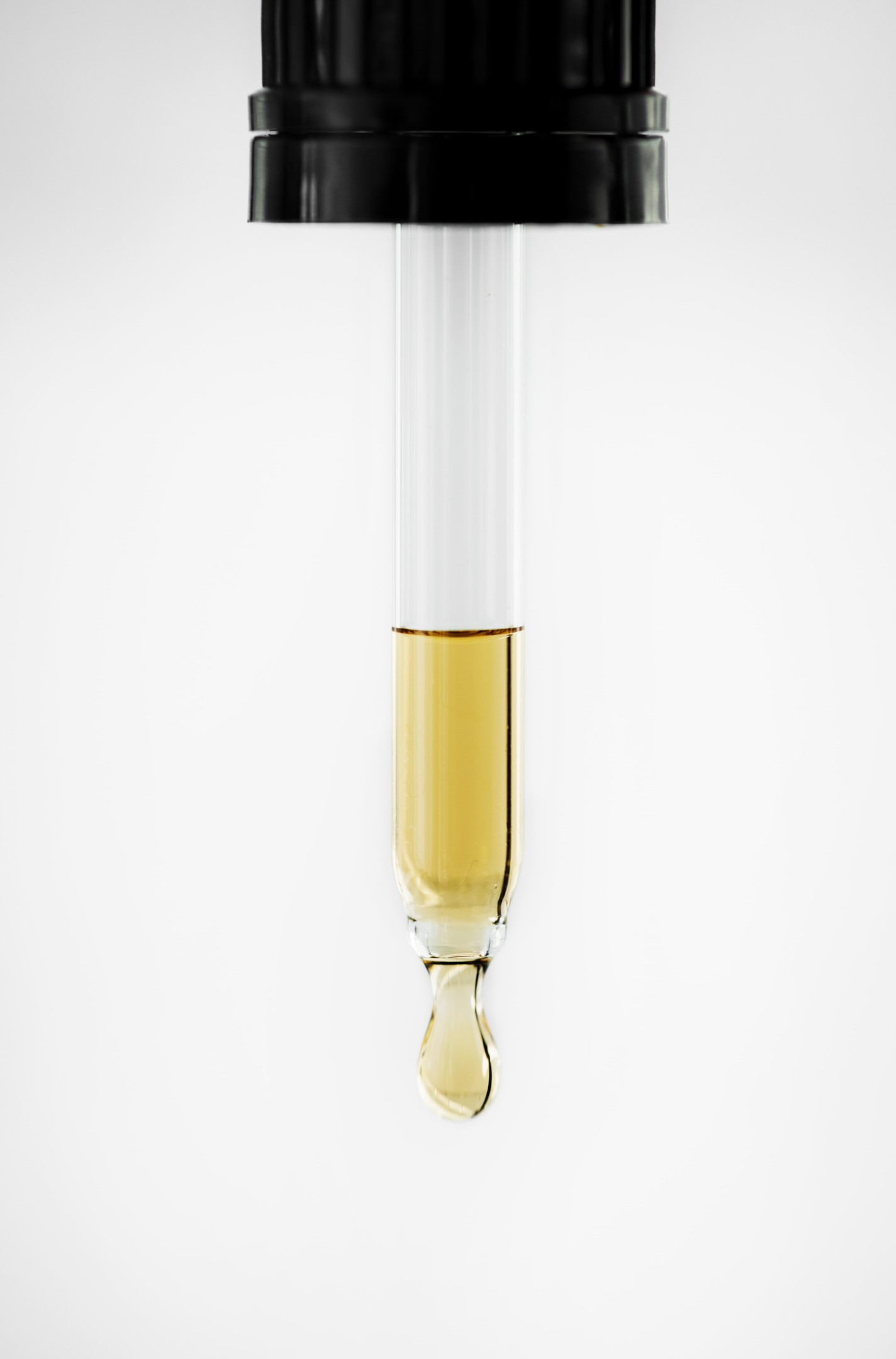
This might be the reason why in another study it was shown that rosehip oil is actually a promising and suitable botanical oil for people with eczema, trophic ulcer, dermatitis and chelitis. These are all conditions that are created due to excess inflammation. This is why rosehip oil is actually suitable for sensitive skin types.
Antioxidant properties of Rosehip Oil
Antioxidant properties – rosehip has been shown to have protective properties against reactive oxygen species causing by UV damage, environmental triggers and pollution. These are actually very effective anti aging properties.
Galactolipin is also a powerful antixoidant.
Anti Aging Properties of Rosehip Oil
Rosehip oil can increase skin elasticity and decrease the visibility of Wrinkles. It is packed with antioxidant and these can have great benefits for mature skin and give anti-aging effects.
In a trial volunteers took oral rosehip powder vs an effective anti aging antioxidant for 8 weeks. Both groups demonstrated increase in skin elasticity and decrease in the visibility of the wrinkles and also increase in the moisture levels.
This is though to be due to the inhibitory power of rosehip on the enzyme MM1. This enzymes breaks down collagen which promotes the signs of aging.
The components galactolipin which was a good anti-inflammatory agent works here as well. UV light damage from the sun creates micro inflammation on our skin cells, this is where galactolipin comes and decreases the inflammation. Yay!
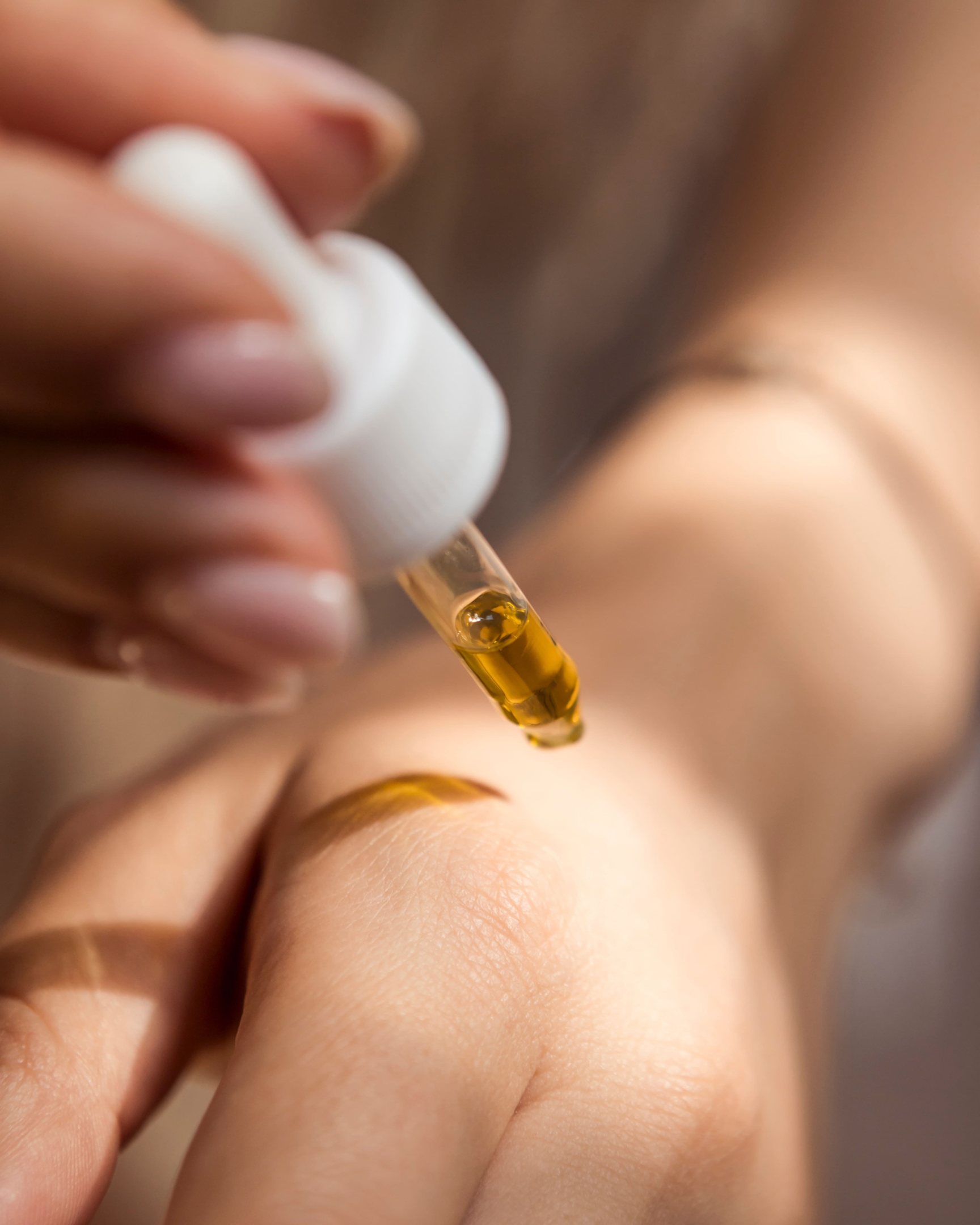
Vitamins of Rosehip Oil and their Effects on the Skin
Rosehip Oil is full with potent vitaimins. It is rich in vitamin E, vitamin C and vitamin A.
The vitamin C in this oil enhances the already existing antioxidant properties. Combining vitamin C with vitamin E is even more superior to using them alone individually. These make rosehip oil suitable for anti-aging skin care routine.
The Magic Ingredient in Rosehip Seed Oil – Tretinoin
Rosehip seed oil is rich in vitamin A and one particular form of Vitamin A – Tretinoin. Tretinoin is also known as all trans retinoic acid and it is an incredible ingredient that targets acne and skin aging.
You read it right, rosehip oil has the natural capacity to treat acne coupled with potent anti aging function. Tretinoin has an effective influence on healing, skin regeneration and collagen production. It can repair and push fresh cells to the epidermis. Its anti-aging properties come from making the skin firmer, smoother and decreasing wrinkles.
Essential Fatty Acids of Rosehip Oil
Rosehip oil is quiet rich in its essential fatty acid compositions. Here is a quick breakdown of the fatty acids:
- linoleic acid – 44%
- linolenic acid is 34%
- oleic acid is 14%
Unlike Argan oil in which oleic acid was the most prevalent fatty acids, in rosehip oil linoleic acids are the most abundant ones. Here is why it is important.
The linoleic acid have a role in the structural integrity and barrier function of the skin. Both linoleic acid and linolenic acid are very important fatty acids. They give rise to a molecule called eicosanoids that send signals and influences the inflammatory response of the skin. This can reduce photoaging.
This is another reason why rosehip oils make one of the most efficient anti aging products and help with wrinkle skin concerns.
Moreover, just like we mentioned above, fatty acids are fatty compunds so these two oils are naturally very suitable for hydrating dry skin types.
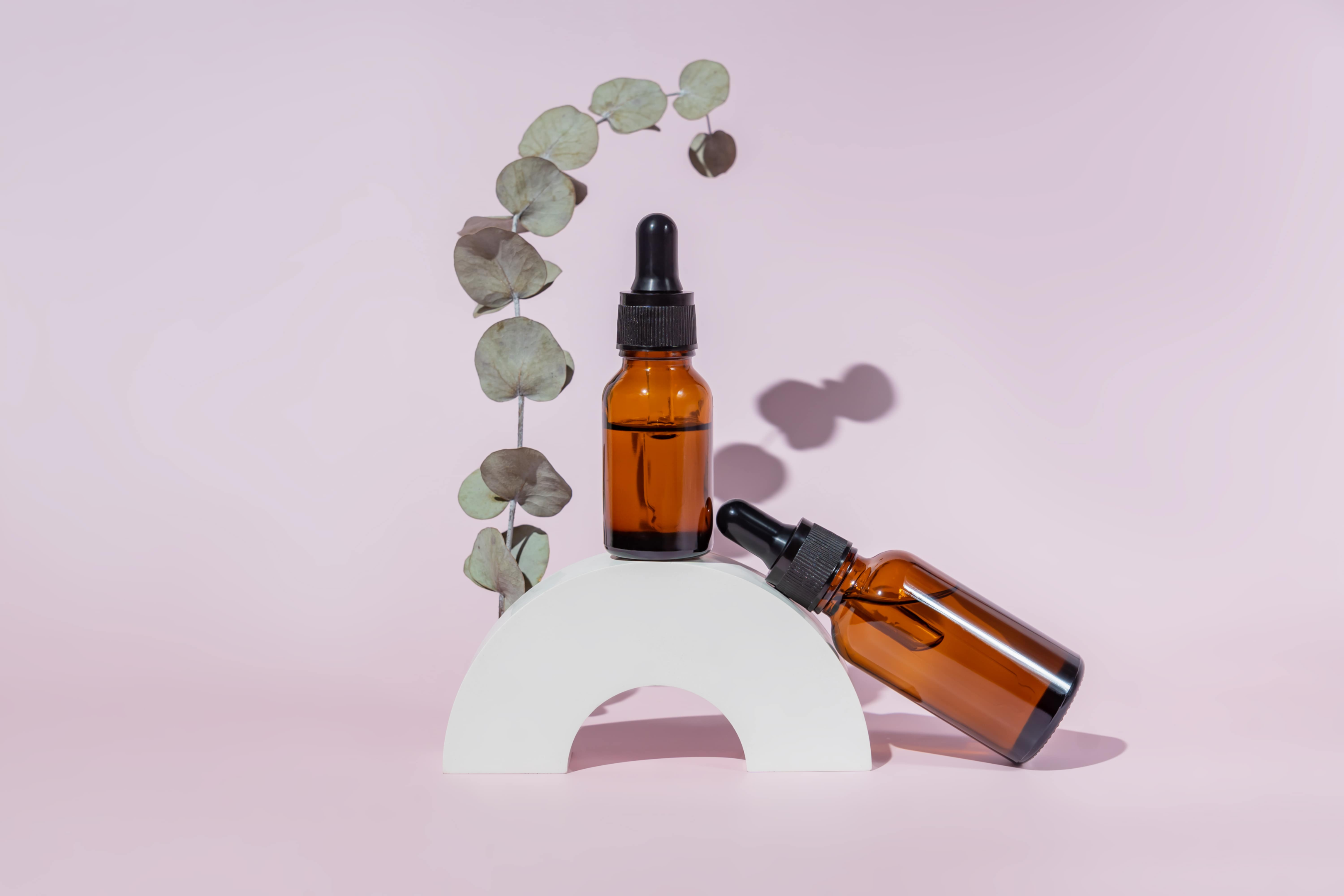
Argan Oil vs Rosehip Oil – Which One is Better?
| Argan Oil | Rosehip Oil | |
|---|---|---|
| Skin Hydration | ✔︎ | ✔︎ |
| Skin Elasticity | ✔︎ | ✔︎ |
| Anti-Aging Benefits | ✔︎✔︎ | |
| Anti-Acne Benefits | ✔︎ | ✔︎ |
| Antioxidant | ✔︎ | ✔︎✔︎ |
| Anti-Inflammatory | ✔︎ | ✔︎✔︎ |
| Skin Barrier Repair | ✔︎ | |
| Wound Healing | ✔︎ | ✔︎ |
| Decreases Sebum Production | ✔︎✔︎ | |
| Improves Stretch Marks | ✔︎ | |
| Comodogenicity | 0 | 1 |
Argan Oil vs Rosehip Oil on Different Skin Types
Disclaimer: There were no clinical studies comparing argan oil and rosehip oil so the information on this section of the blog is made by me through the analysis of the composition of the facial oils.
| Skin Type | Argan Oil | Rosehip Oil |
|---|---|---|
| Mature Skin | ✔︎ | ✔︎✔︎✔︎ |
| Oily Skin | ✔︎✔︎ | ✔︎ |
| Sensitive Skin | ✔︎✔︎ | |
| Dry Skin | ✔︎ | ✔︎ |
| Normal Skin | ✔︎ | ✔︎ |
Argan Oil vs Rosehip Oil on Oily Skin
Argan oil is rich in oleic acid which is very very suitable for oily skin and for acne prone skin. Sebum is the component that makes skin oily and it is made in our sebacious glands on our skin. Clogging those glands would result in acne.
Rosehip oil is suitable for acne prone skin and oily skin as well. Rosehip oil affects acne prone skin differently than argan oil. In argan oil it is the high oleic acid composition which helps but in rosehip oil it the tretinoin which can provide help with acne.
Tretinoin is derivate of vitamin A and has proven benefits to help fight acne and provide an even skin.
If you have oily skin I would recommend using argan oil. Using rosehip oil is acceptable but argan oil would make sure to target that oiliness better.
Is Argan Oil suitable for Acne prone skin?
Yes argan oil is very suitable for acne prone skin. The reason is the oleic acid and its action on reducing the production of sebum. As mentioned above too much sebum can clog those glands and create acne.
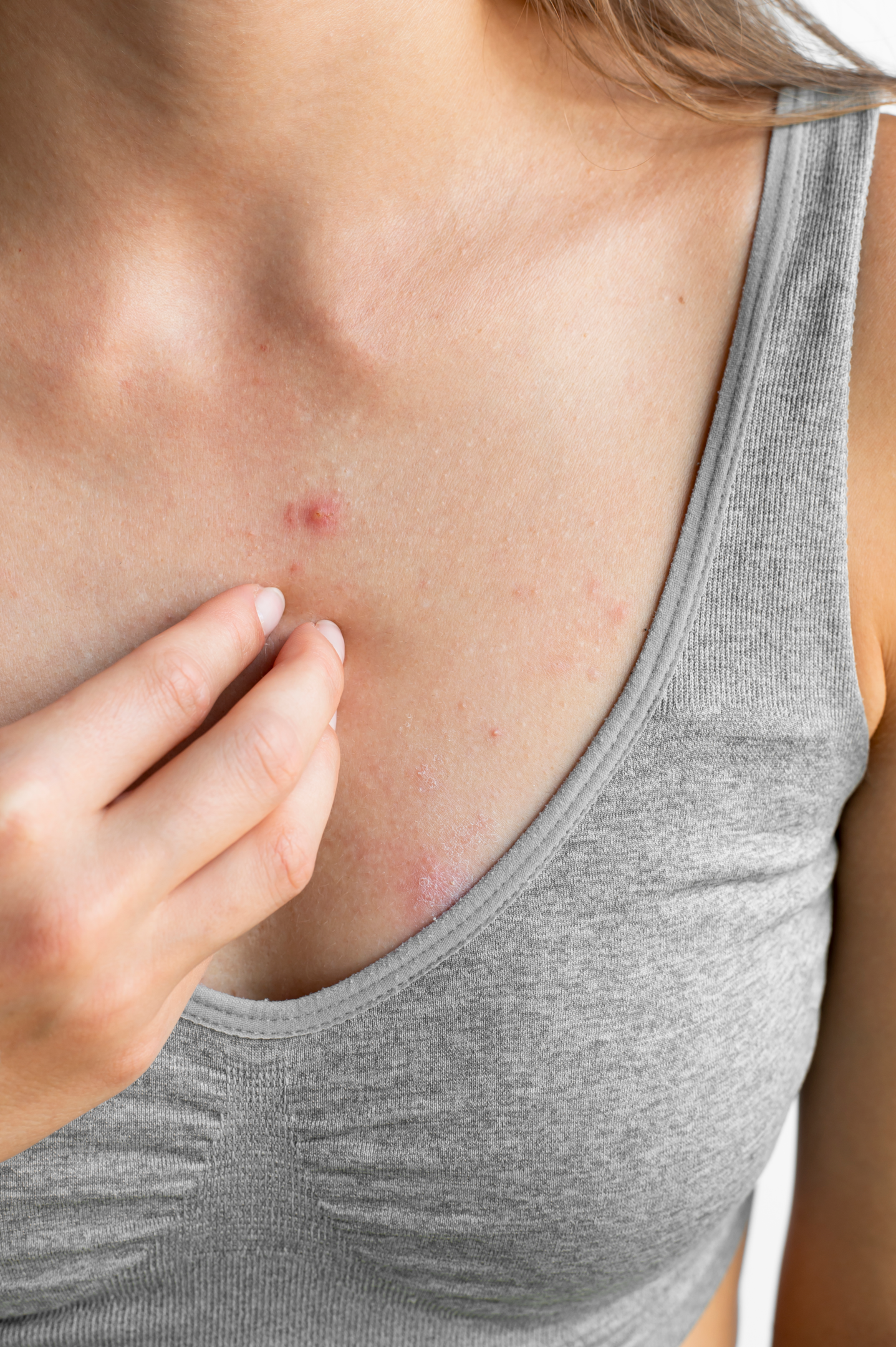
Argan oil also has anti-inflammatory properties which could reduce the inflammation that comes with acne. Argan oil also has comedogenicity score of 0, meaning that it most likely would not cause any clogging of our pores and lead to more acne.
Argan Oil vs Rosehip oil for Dry Skin
Dry or sensitive skin whichever you have, it is a trouble! Let’s focus on dry skin. Dry skin is characterised by sensation of ithciness, dehydration, scaling or even some of your skin falling off. Dehydrated skin, on the other hand, is a transiet situation of your skin that can be experienced after using some aggressively drying skincare products – like alcohol, some acids or just lack of moisturising agent.
Argan oil and rosehip oil are both plant oils very rich in essential fatty acids. Which means they are rich in lipids which could form a barrier on your skin and prevent any water loss.
Does that mean both argan oil and rosehip oil are suitable for dry skin type? Yes, argan and rosehip oils are more than suitable for these skin conditions.
BUT!
Dry or sensitive skin, it does not matter, in order to get the most out of these benefits we have to cover one point!
These oils work by trapping an already existing moisture in your skin. You have to moisturise before applying your argan oil and rosehip oil!
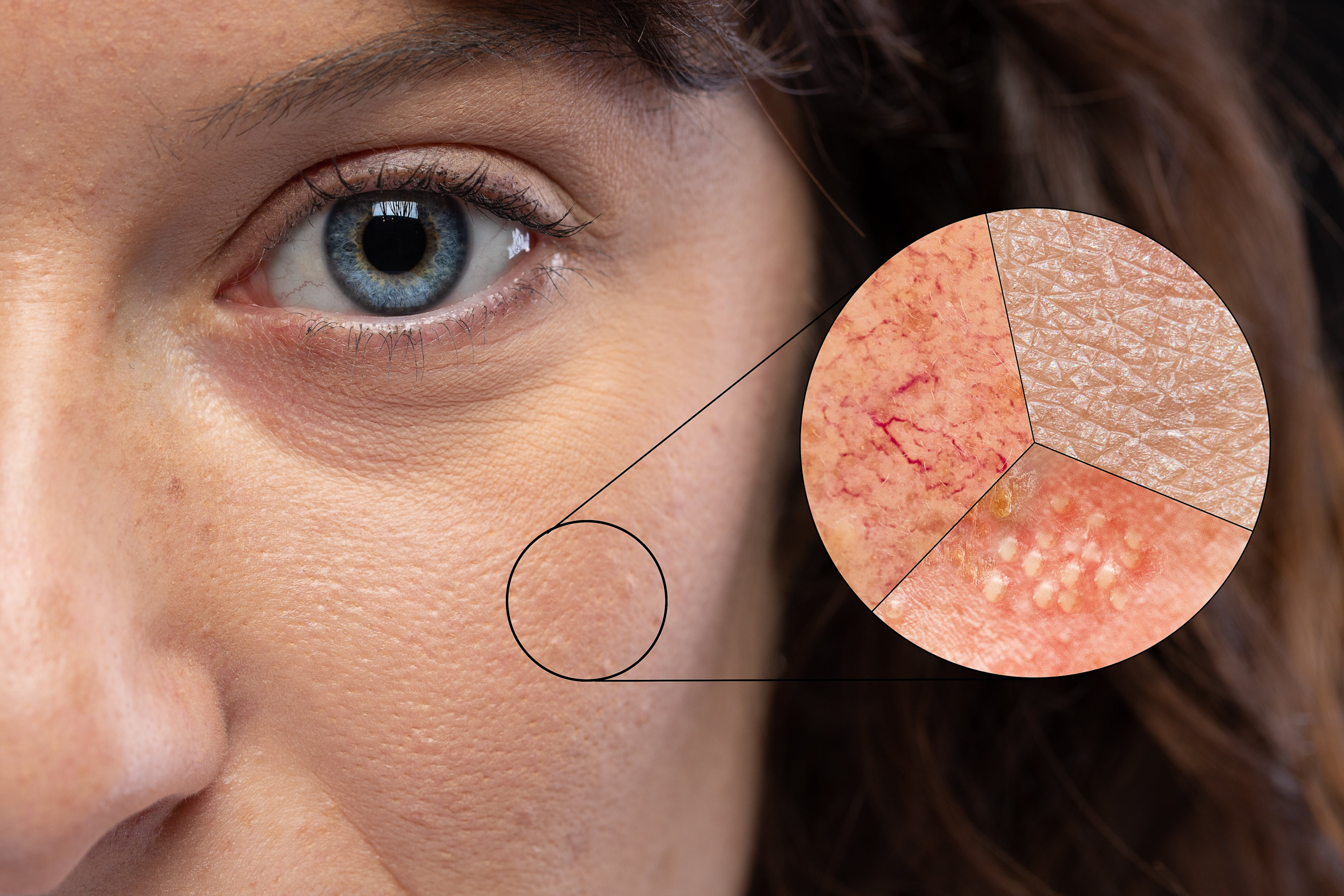
Argan Oil vs Rosehip Oil for Anti-Aging Benefits
Skin aging is really something scientists are trying to figure out and if there was only one component to the problem I think they would have it figured out by now! But here is how argan oil and rosehip oil can help with this mysterious challenge.
Rosehip oil and argan oil both can help with increasing the elasticity of our skin. Both of them present some anti aging benefits but the mechanism behind it seems to differ.
In this debate I thiink going with rosehip oil would be more beneficial as it increases collagen but also it has the magic ingredient tretinoin. Tretinoin is not only suitable for anti acne skin types but also to promote the clearing of dead skin cells and promote collagen production!
Argan Oil vs Rosehip Oil for Sensitive Skin
Sensitive skin conditions can be really challenging and decrease life quality substantially. While visiting regularly with your dermatologist is the best solution, some botanical oils can really help.
Argan or rosehip oil, which is the good one here? In sensitive skin we see a huge amount of inflammation that increases and increases producing even more inflammation and damage.
Rosehip oil is a potent anti-inflammatory botanical oil and it has been proven in the scientific literature that rosehip oil can help with skin conditions such a dermatitis, psoriasis and eczema. So in this debate argan oil vs rosehip oil and the literature favor rosehip oil.
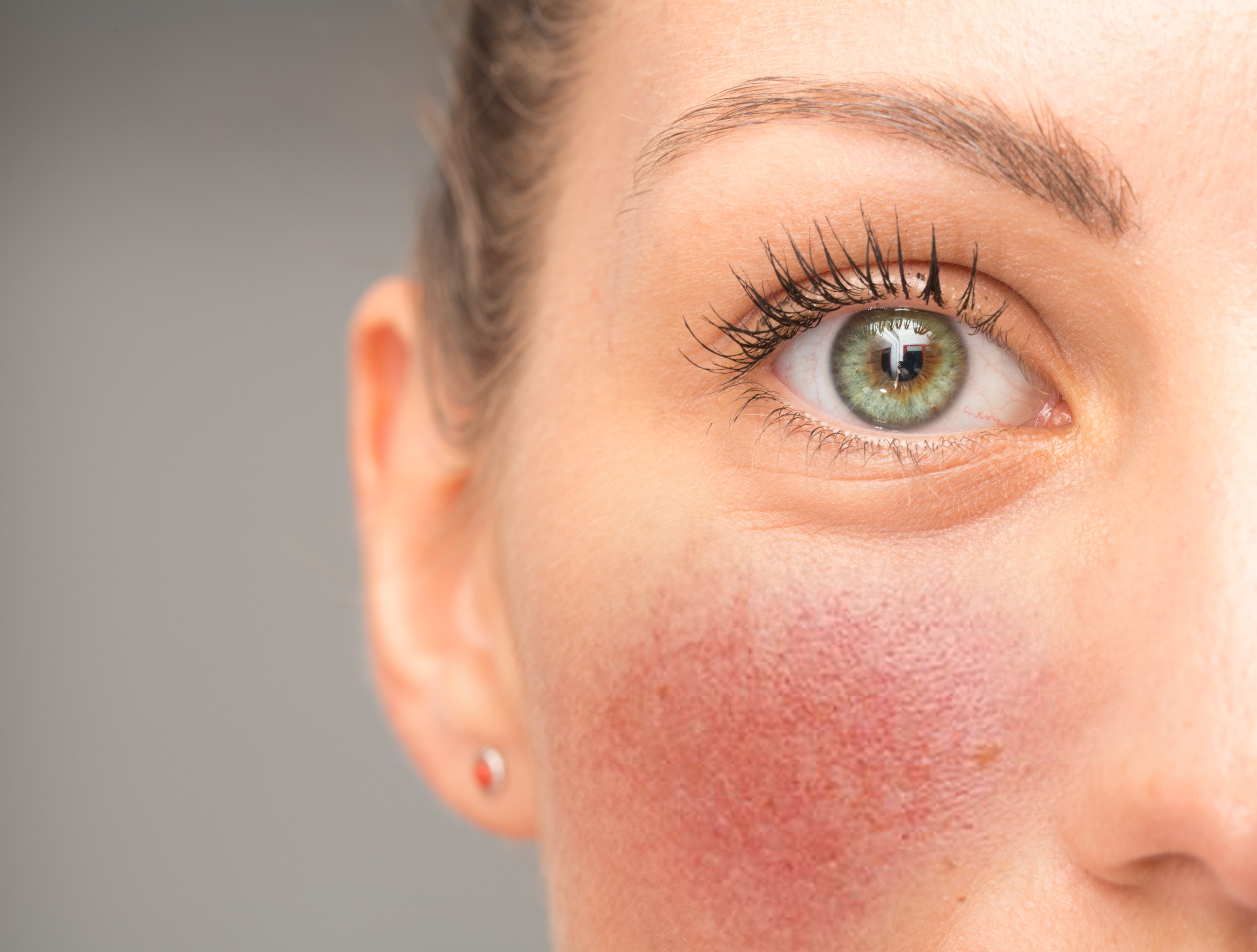
However, it is important to note that, even using rosehip oil most likely will not eliminate your skin condition it has just been shown that rosehip oil helps with the calming down of sensitive skin.
Use rosehip oil as a part of your skincare routine, but make sure to visit your doctor for recommendations and medications that can eventually eliminate your skin condition!
Can you Use Argan Oil and Rosehip Oil Together?
Yes you certainly! Rosehip oil and argan oil are both carrier oils meaning that you can just apply them directly on your face.
Cleanse your skin with your cleanser, apply your moisturiser and just drop up to 3 drops from each of the botanical oils, mix a little on your hand. I think using it once am or pm, would be enough to get the juiciest effects of both of the oils!
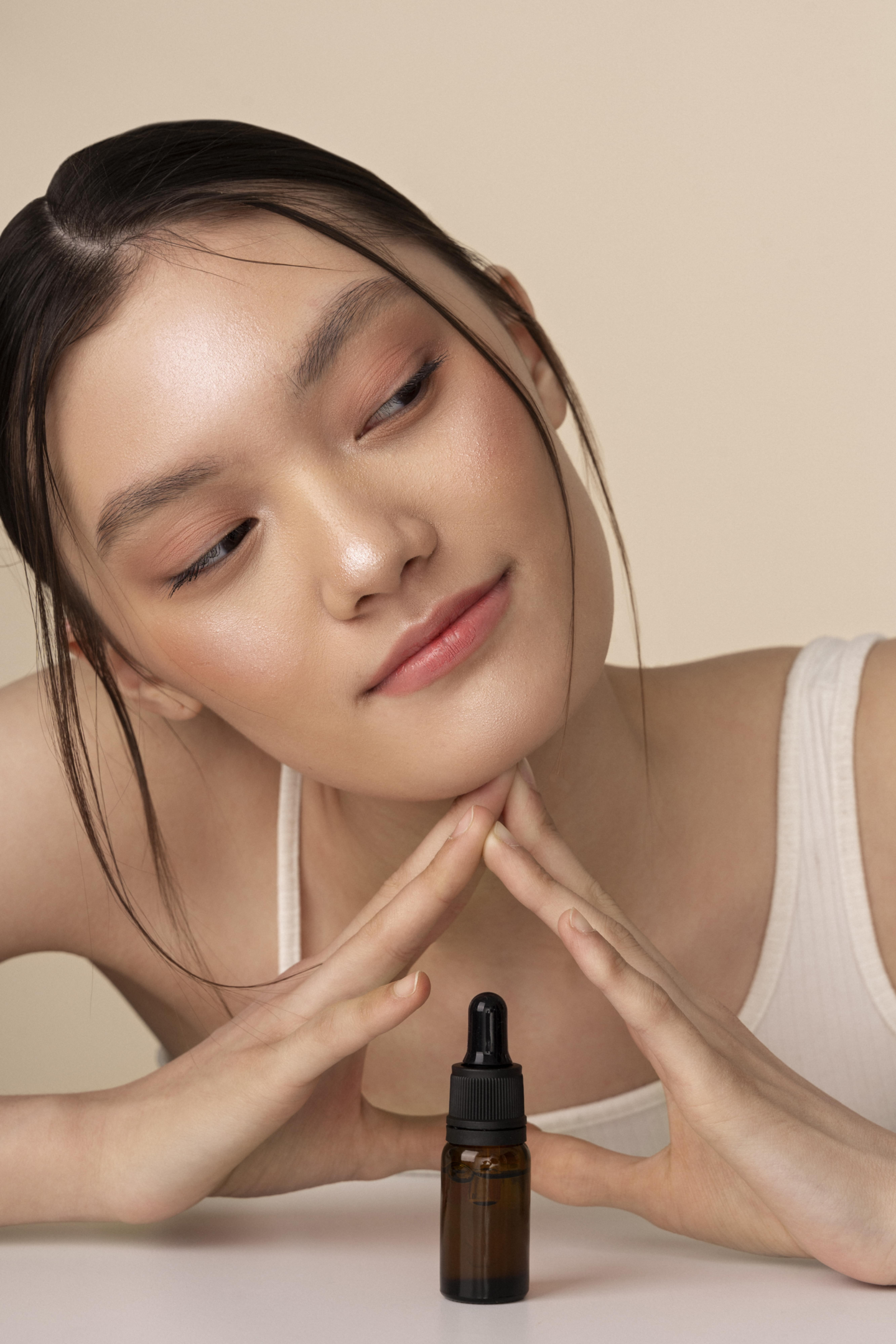
Make sure to apply SPF once the argan and rosehip oil have been absorbed!
You can combine argan oil with coconut oil or jojoba oil to promote hair growth and enjoy a luxurious spy day at home!
Final Words on Argan Oil vs Rosehip Oil!
Argan oil and rosehip oil are both packed with nutrients, hydrating components and each one can have a different effect on our skin. Both are ancient medicinal plants that can help with skin health.
I think if your skin can tolerate those ingredients pretty well, the best thing would be to use them together consistently and enjoy the benefits!
If you have liked this blog and found it interesting please feel free to comment and share!
If you like comparing skincare ingredients as much as me – here is a blog on how to compare skincare products and here are different examples of comparisons – rose oil vs rosehip oil.

